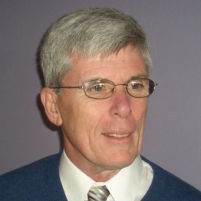|
Restricted Repetitive Behavior in Autism Spectrum Disorder: Clinical and Translational Findings |
| Monday, February 24, 2020 |
| 12:50 PM–1:40 PM |
| Regency Ballroom |
| Area: AUT; Domain: Basic Research |
| Instruction Level: Intermediate |
| CE Instructor: Mark Lewis, Ph.D. |
| Chair: Joseph H. Cihon (Autism Partnership Foundation; Endicott College) |
| MARK LEWIS (University of Florida) |
 Dr. Lewis completed his undergraduate education at Bowdoin College after which he worked in the area of developmental disabilities, and completed a Master’s degree from Western Michigan University. His interest in developmental disabilities continued during his Ph.D. studies at the Kennedy Center at Vanderbilt University, where he focused on repetitive behavior in individuals with intellectual disability. Interest in the neurobiological basis of these behaviors led him to pursue post-doctoral training at the University of North Carolina at Chapel Hill. Dr. Lewis has held faculty positions at the University of Medicine and Dentistry of New Jersey, the University of North Carolina at Chapel Hill and the University of Florida, where he is currently Professor, Co-Vice Chair for Research, and Executive Director, Center for Autism and Related Disabilities. His research has employed both clinical studies and animal models to understand the phenomenology, etiology, pathophysiology and treatment of repetitive behaviors. His work with animal models has helped elucidate the neural circuitry involved in the development and expression of these behaviors and has pointed to potential novel treatments. Dr. Lewis has been the recipient of a number of NIH grant awards, has been a member and chaired numerous NIH grant review panels, has published over 125 papers in refereed journals, and has served as reviewer and editorial board member for a number of scientific journals. |
| Abstract: Restricted repetitive behavior (e.g., stereotypies, compulsions, rituals) is diagnostic for autism spectrum disorder (ASD) and frequently observed in related neurodevelopmental disorders. Despite this, relatively little is known about the neurobiological mechanisms that mediate the development and expression of these repetitive behaviors. This lack of knowledge precludes effective early intervention and prevention strategies. Clinical studies have provided limited findings based on a small number of neuroimaging and genetic studies. Moreover, there is little evidence for the efficacy of pharmacotherapy for restricted repetitive behavior in individuals with ASD. Valid animal models can aid substantially in identifying pathophysiological factors mediating aberrant repetitive behavior and aid in treatment development. We will review relevant clinical neuroscience as well as our findings from animal models, highlighting the role of altered cortical-basal ganglia circuitry in the development and expression of these behaviors. We will also review our pharmacological studies in animal models that have identified novel potential therapeutic targets for clinical drug development. |
| Target Audience: Board certified behavior analysts; licensed psychologists; graduate students. |
| Learning Objectives: At the conclusion of the presentation, participants will be able to: (1) identify conditions associated with the induction and amelioration of repetitive behavior in both humans and animals; (2) identify brain regions and brain pathways that have been implicated in the mediation of restricted repetitive behavior; (3) identify categories of animal models of restricted repetitive behavior; (4) identify potential therapeutic targets that could be used in novel drug development or neuromodulation efforts to treat repetitive behavior. |
|
| |